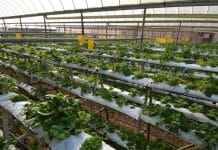It is easy to get caught up in year-on-year variations in macroeconomic data and arrive at seemingly definitive conclusions about the current state of the market. Of course, a single data point rarely tells the full story and that appears to be the case when it comes to investor confidence in Southeast Asia, particularly amongst private equity (PE), venture capital (VC) and family offices.
Despite economic volatility driven by inflation and interest rates – or maybe even because of it – PE and family offices are increasingly buoyant about the opportunities on offer in this region.
In ASEAN, there is a sustained, long-term growth in dealmaking as the region’s capital markets continue to mature. Our data found that annual merger and acquisition (M&A) volume continues upwards, from double-digit billions during the 2000s to $248 billion in 2021.
Countries such as Indonesia, Malaysia, Thailand, Vietnam, and the Philippines are increasingly on the investment radar due to their relatively robust economies, burgeoning middle classes, and a corresponding increase in consumer demand. Southeast Asia’s start-up scene has far exceeded expectations and is now home to more than 50 unicorns such as Carousell, Grab and GoJek – companies each valued at more than US$1 billion.
Here in Malaysia, data from the Securities Commission Malaysia bears out the same optimism as it relates to PE and venture capital funds, with an 8 per cent jump in Malaysian investments from those groups between 2021 and 2022.
However there is plenty of scope for that same group of investors, along with family offices, to continue that upward surge of investment within the region. There are new and important investment catalysts still emerging.
The ebbs and flows of markets during the pandemic have had some significant long-term effects in the region. One of those has been the consolidation of Southeast Asia as a global hub for family offices. By way of example, Singapore was home to around 400 family offices three years ago – that number stands at nearly double today, with 700 family offices established there despite higher standards to qualify in that market.
Family offices, PE and VC are all gaining access to greater quantities of higher-quality data than ever before. As with anything in life, information breeds confidence. In the case of the funds looking at developing markets within Southeast Asia, this means they can make better informed decisions, ultimately leaving scope for higher risk appetite and potentially, larger investments in these markets.
This cohort of investors are a unique match for our part of the world. They are not limited by investment constraints of large corporates and institutions – instead, their extended investment timelines are key to them being stable investors for burgeoning enterprises and ventures in the region. They bring fresh perspectives, patient capital, and a diverse range of investment strategies which are transforming the industry, promoting innovation in previously conservative corners of the investment community, and driving a more tailored and socially responsible investment approach.
This new depth of data coincides with the sustained efforts of various ASEAN governments. There has been a concerted effort by various regulators around the region to create fertile environments for cross-border investment. Here in Malaysia, that has been most evident in the Securities Commission’s reforms to the VC/PE framework, such as an investment test for investors to qualify for investing in VC/PE funds and simplifying the registration requirements and process. These reforms aim to bolster capital formation, expand the investor base and enable more investments to reach early-stage start-ups within Malaysia.
The growing ability of investors and businesses to more carefully assess market conditions is translating into boosted investor confidence in identifying opportunities for long-term growth and success in Southeast Asian markets. Bloomberg Media’s recent Future of Wealth report of more than 600 affluent individual investors based predominantly in APAC revealed that nearly one half of these affluent investors sampled in Singapore (48 per cent) view global volatility as an opportunity for long-term wealth creation. They are considerably more optimistic than the other markets sampled, such as Hong Kong, India and the United Arab Emirates (37 per cent).
So while headlines and geopolitics indeed play a role in shaping the market, the same can be said about proprietary data and investor confidence in opening up new horizons for the Southeast Asian economy. Sophisticated investors see the silver lining within economic uncertainty and, now armed with the right tools and data, are ready to capitalise on the opportunities currently on offer.
By Steven Yankelson, Head of ASEAN, Bloomberg LP









